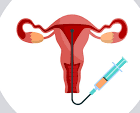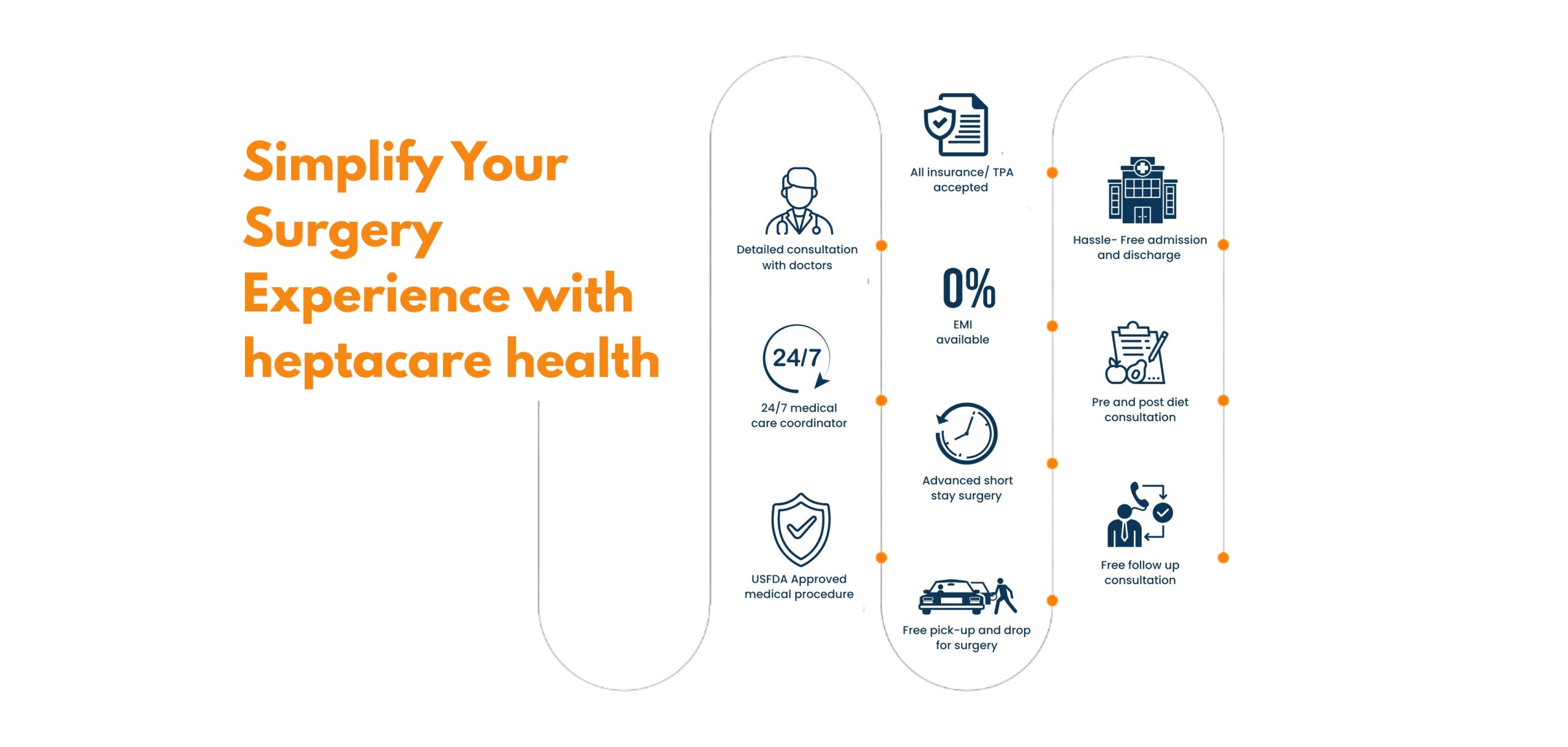Egg freezing, or oocyte cryopreservation, is offered at HeptaCare Health Health. Schedule an appointment with a fertility specialist to discuss freezing your eggs.
Happy Patients
Disease
Hospitals
Cities
Egg freezing, or oocyte cryopreservation, is a process in which a woman’s eggs (oocytes) are extracted, frozen and stored as a method to preserve reproductive potential in women of reproductive age. The first human birth from a frozen oocyte was reported in 1986. Oocyte cryopreservation has advanced greatly over the past few years, with improved overall success of eggs surviving the freezing process. It is no longer considered an experimental procedure by the American Society for Reproductive Medicine. The techniques leading to enhanced gamete survival, potential fertilization and live birth rates allow women a much greater degree of autonomy than was possible even in the past 5 years.
Cryopreservation of the oocytes can be considered for a variety of reasons:
Egg Freezing Process
First, your HeptaCare Health fertility specialist may perform an assessment of the ovarian reserve to estimate the potential yield of oocytes prior to ovarian stimulation cycle. The assessment would include blood tests and pelvic ultrasound. This will also help to determine the necessary dose of medications. Ovarian stimulation is carried out in the same manner that is used with in vitro fertilization (IVF), using injectable hormonal medications. Following the stimulation, the oocytes and the surrounding fluid in the ovarian follicles are aspirated vaginally while under sedation.
The maturity of the eggs is assessed under the microscope, and those that are mature are cryopreserved. Currently, vitrification is the method of choice for cryopreserving oocytes, and this is achieved by ultra-rapid cooling into liquid nitrogen where they can be stored.
When the woman is ready to use the frozen eggs to achieve pregnancy, these cryopreserved eggs are placed in warming solution and assessed. Those eggs that survived the freezing process are fertilized with intracytoplasmic sperm injection (ICSI), where a single sperm is injected directly into the egg, and the fertilized eggs will grow in culture until the embryo(s) are ready to be transferred into the uterus to achieve pregnancy, typically 3-5 days after fertilization.
Egg Freezing Success Rates
Clinical pregnancy rates have been estimated between 4-12% per oocyte. But since egg freezing is relatively new, more data will be needed to have a better idea on these success rates. In general, the two most important factors in determining the probability of a live birth are the woman’s age at the time of egg freezing and the number of available eggs.
Available data comparing births resulting from previously frozen oocytes with those from fresh oocytes have not shown an increased risk of congenital anomalies. More long-term data, however, will be needed to further assess these risks.
Egg Freezing Risks
Risks are similar to those associated with ovarian stimulation for IVF, which include small risks of ovarian hyperstimulation syndrome (enlargement of the ovaries and fluid accumulation in the pelvis and abdomen), infection, and bleeding related to the egg retrieval procedure.
available for up to 4 years of storage. It must remembered that older maternal age when carrying a pregnancy is associated with higher risks of pregnancy complications, such as high blood pressure, diabetes, and cesarean section. Most clinics have an upper age limit on when these gametes can be used to achieve pregnancy.
The cost of the process depends if there is any insurance coverage, and that is related to the individual plan. A lot of insurance plans may cover the initial assessment and may cover a portion of the treatment.


Based on 7721 Recommendations | Rated 4.68 Out of 5
Happy Patients
Clinics
Cities
Surgeries
Doctors
Hospitals

IUI (Intrauterine Insemination) is a fertility treatment where washed sperm is directly placed into the uterus to increase chances of pregnancy.

IVF is a fertility treatment where eggs and sperm are combined in a lab to create embryos, which are then transferred to the uterus for pregnancy.
Male fertility depends on healthy sperm count, motility, and shape for successful fertilization.

Female fertility relies on regular ovulation, healthy eggs, and a receptive uterus for conception.

Egg freezing is a procedure where a woman’s eggs are collected, frozen, and stored to preserve fertility for future use.

➡️ In men, low sperm count, poor sperm quality, or hormonal issues are common.
➡️ In women, ovulation problems, blocked fallopian tubes, or uterine conditions may cause infertility.
➡️ If you’re under 35, try for 12 months.
➡️ If over 35, consult after 6 months of trying without success.
➡️ IUI involves placing sperm directly into the uterus.
➡️ IVF involves combining eggs and sperm in a lab, then placing an embryo in the uterus.
➡️ Yes, age plays a key role. Fertility starts to decline after 30 and drops faster after 35, affecting both natural conception and IVF success rates.
●IUI treatment cost in Vizag ● low-cost IVF treatment in Hyderabad ● cashless fertility treatment near me ● painless IUI procedure in Vijayawada ● fertility treatment with insurance in Vizag ● IVF treatment cost in Hyderabad ● fertility treatment packages in Vijayawada ● affordable fertility clinic near me ● best IVF center in Hyderabad ● fertility consultation charges in Vizag ● IUI & IVF treatment cost in Vijayawada ● fertility hospital near me ● IVF procedure price in Hyderabad ● low-cost fertility treatment in Vizag ● fertility test cost near me ● fertility treatment with EMI in Vijayawada ● fertility specialist doctor near me ● fertility treatment packages in Hyderabad ● fertility clinic near me ● egg freezing cost near me ● IVF treatment for couples in Vizag ● painless IVF treatment in Hyderabad ● IVF for women above 35 near me ● best IVF hospital in Vijayawada ● IVF procedure cost in Hyderabad ● IVF treatment offers near me ● advanced fertility hospital in Vizag ● affordable IVF treatment near me ● fertility consultation fees in Hyderabad ● IVF treatment with EMI option ● advanced fertility care near me
Disclaimer: **The result and experience may vary from patient to patient.. ***By submitting the form or calling, you agree to receive important updates and marketing communications.
Getting an accurate diagnosis can be one of the most impactful experiences that you can have.

cure with care
Copyright © 2025. All rights reserved.
Consult with our expert surgeon for more than 50+ diseases
Happy Patients
Hospitals
Cities